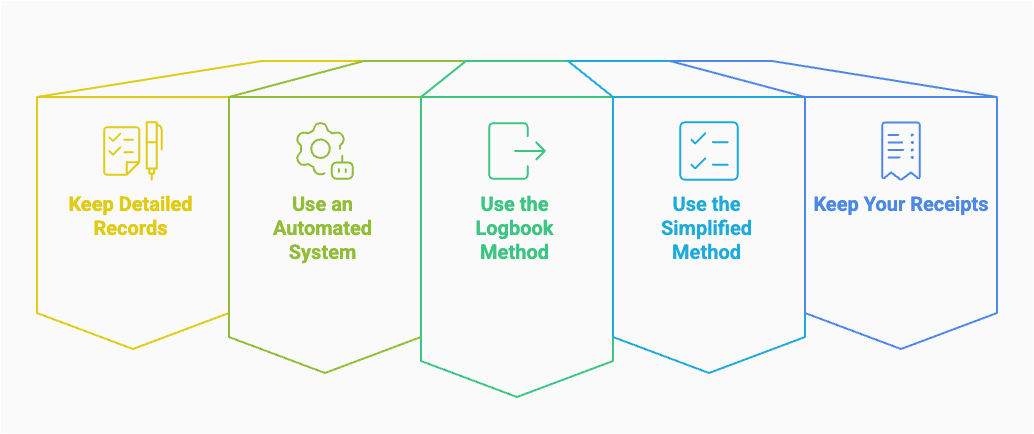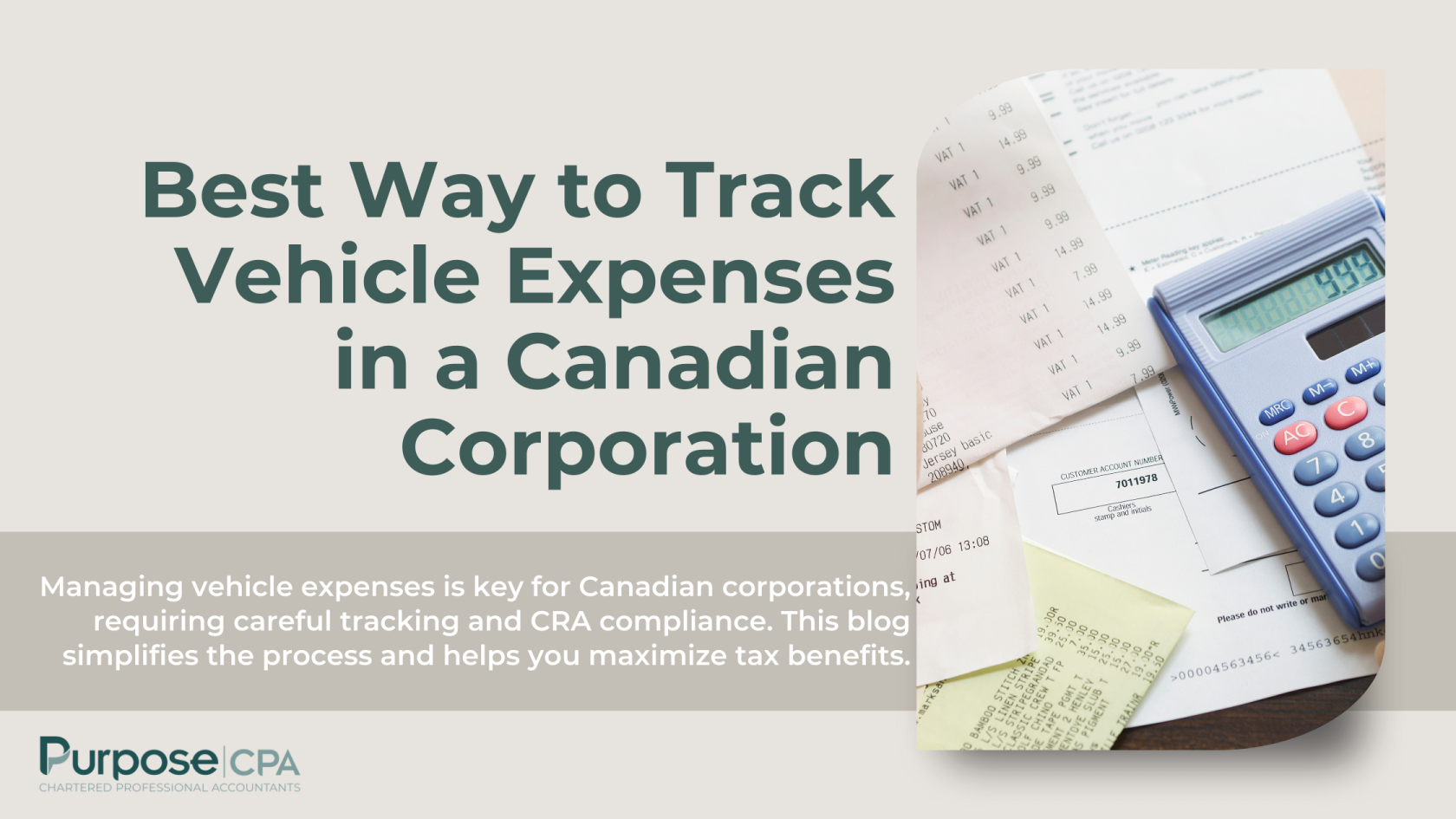Navigating vehicle expense claims for your corporation can be intricate but essential for maximizing your tax benefits. This blog simplifies the process, ensuring your claims are both compliant and optimized.
This blog is designed for small business owners and entrepreneurs seeking to maximize tax deductions and maintain accurate vehicle expense records. Proper tracking and documentation are essential not only for optimizing tax savings but also for ensuring compliance with CRA requirements and avoiding potential issues during audits.
TLDR:
Tracking vehicle expenses in your corporation requires careful documentation and CRA compliance. Whether using a logbook or the simplified method, proper records are essential for tax claims.
What Is the Best Way to Record Vehicle Expenses in My Corporation in Canada?
Recording vehicle expenses in your corporation in Canada can be a bit complicated, but it is important to do it correctly in order to claim them on your taxes. Here is an overview of the best way to record vehicle expenses in your corporation:

- Keep detailed records: Keep detailed records of all vehicle expenses, including the date of the expense, the purpose of the expense, the odometer reading, and the total cost. This will help you support your claim if the Canada Revenue Agency (CRA) asks for proof of your expenses.
- Use an automated system: Use an automated system such as a spreadsheet or bookkeeping software to track your vehicle expenses. This will help you keep your records organized and make it easier to calculate your deductions.
- Use the logbook method: The CRA recommends using the logbook method to calculate your vehicle deductions. This method involves keeping a detailed logbook of all your vehicle expenses for a period of not less than 12 consecutive weeks. The logbook must include the date, the starting and ending odometer readings, the total distance driven, the purpose of the trip, and the total cost of the expense.
- Use the Simplified Method: The CRA also provides a Simplified Method that allows you to claim a flat rate of $0.55 per kilometer driven for business purposes, up to a maximum of 5,000 kilometers. This method is easier to calculate, but it may result in a lower claim than the logbook method.
- Keep your receipts: Keep all your receipts and invoices as proof of your expenses in case of an audit. Use receipt capture software to streamline the process.
Conclusion
The CRA has strict rules on vehicle expenses, so consulting a tax professional can help ensure compliance and maximize deductions for your business.
At Purpose CPA, we’re equipped to guide you through the process and ensure your claims are maximized and compliant. Reach out today for a consultation and drive your business forward with confidence.




